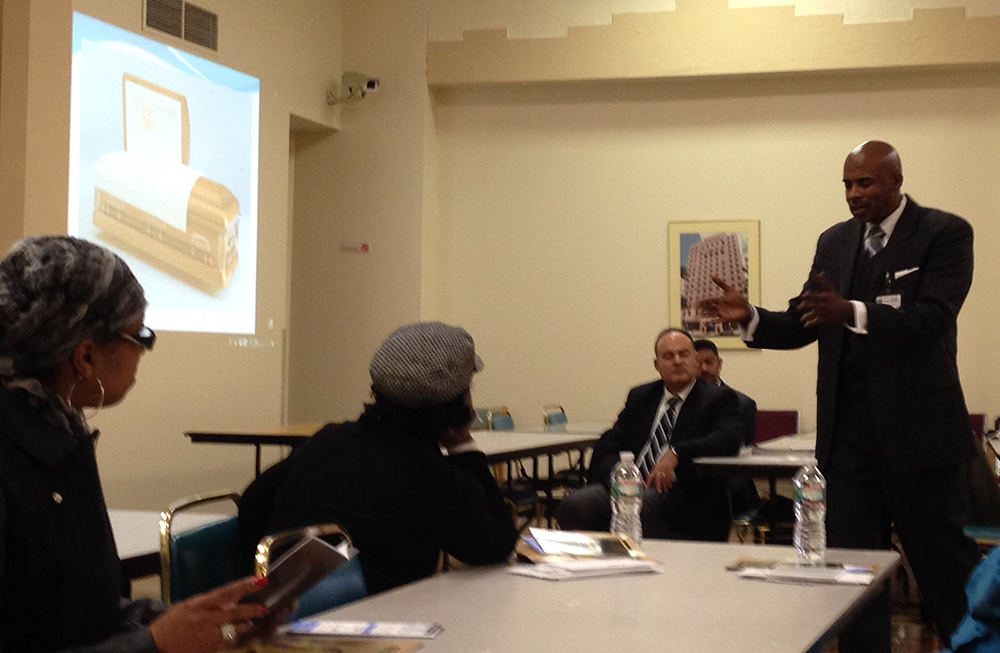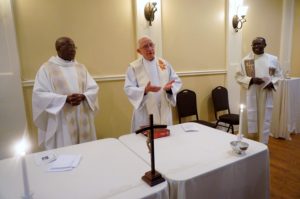
Residents of New Community Douglas Homes recently attended a presentation on funeral arrangements and life insurance in an effort to better prepare for what Deon Freeman calls your “final expenses.” Freeman, Regional Manager of the Roselle-based Lincoln Heritage Funeral Advantage, spoke to residents like Theresa Brown, 53, who says she has already made plans for life insurance as to not burden her only son after she passes away.
The following information, discussed by Freeman, is provided by the Funeral Consumer Guardian Society, an independent senior consumer advocate organization that is not affiliated with any religion, funeral home, cemetery, or any particular funeral practice.
The Funeral Rule of 1984 was written to protect you: The law was established in 1984 to protect consumers from funeral homes that pushed unnecessary goods and services or charged highly marked-up prices.
Funeral costs continue to climb: The average cost of a funeral keeps going up: 1970 = $983; 1980 = $1,809; 1990 = $3,392; 2000 = $5,773; and 2010 = $11,282, according to figures from the National Funeral Directors Association.
Survivors and family members are at risk of overspending: Many on-the-spot decisions must be made while survivors are undergoing the emotional upheaval of losing a loved one.
Shopping around for the right funeral home can make a big difference: Prices can vary greatly for basic service fees ($295 to $2,000), a casket ($450 to $16,000), using a burial vault ($300 to $8,000), and more.
Life insurance is one option for dealing with one’s final expenses: Benefit goes directly to the beneficiary.
Small local funeral homes usually have the lowest prices: Prices at small locally-owned businesses can be as much as $1,300 to $2,000 less than nationally-owned funeral homes.
Shipping the remains for burial elsewhere in the U.S. can increase your costs up to $2,000: Survivors may incur this cost if their loved one wishes to be buried in their hometown or if they die while traveling overseas.
Insurance benefits often go unclaimed because a beneficiary simply could not locate the policy or did not know it existed: Discuss these matters with your loved ones in advance, including any documents stored in safe-deposit boxes.
Plan ahead: Sit down and discuss end of life arrangements with your loved ones. Reasonably estimate your funeral costs and budget what you can afford.



